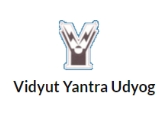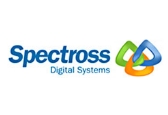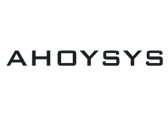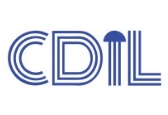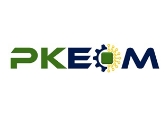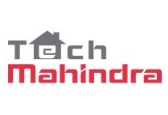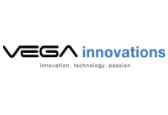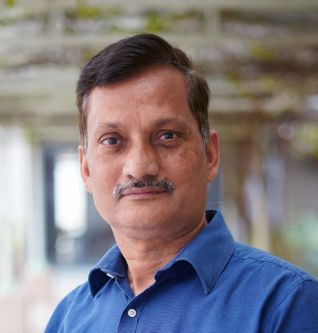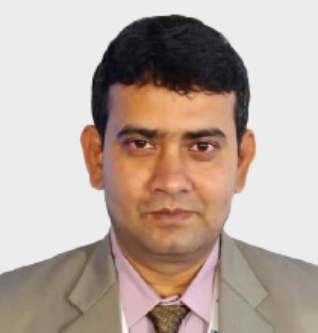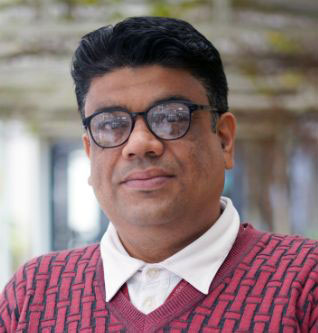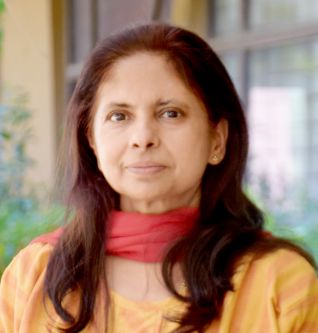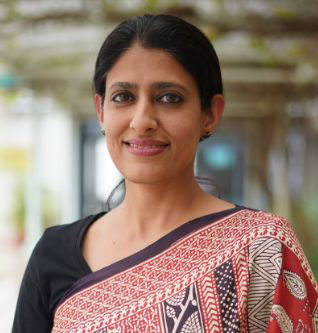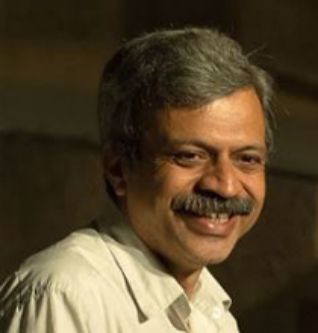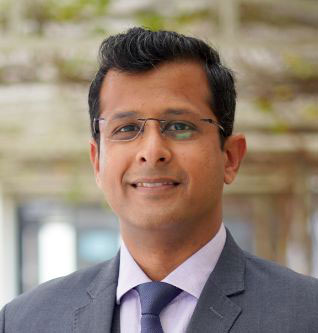B Tech ECE
ECE subjects, scope, placements and more
B Tech Electronics and Communication Engineering: Overview
NIIT University’s (NU) B Tech Electronics & Communication Engineering (ECE) programme aims to create professionals who can engineer large, relevant and robust electronics & communications systems. The B Tech ECE programme provides students a strong foundation in the fundamentals of Electronics and Communications Engineering through courses such as Analog & Digital Communications, Digital Logic & Circuits, Coding & Information Theory, etc. The programme provides mastery over advanced topics in Embedded Systems, Wireless Broadband Communications and Digital Signal Processing to enable students to straddle the overlapping fields of Electronics, Communications and Computer Science.
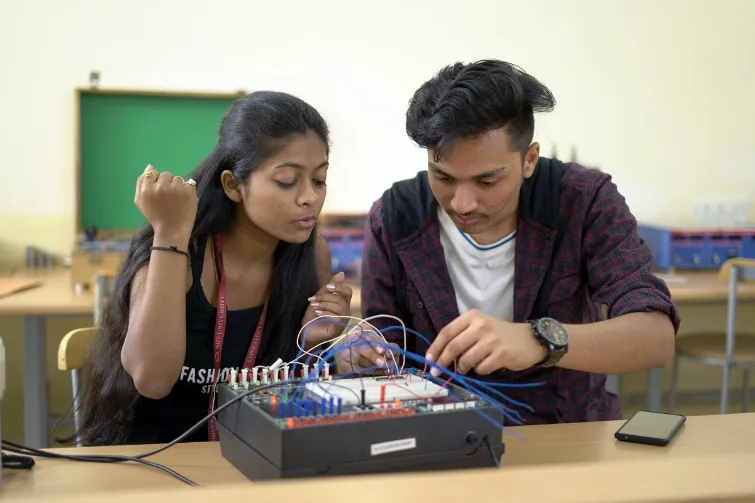
NU’s Electronics and Communication Engineering Vision
NU’s Electronics and Communication Engineering Mission
- To cultivate a culture of inquest and curiosity that pushes the boundaries of knowledge and drives research and innovation.
- To create a dynamic and supportive learning environment that encourages critical thinking, creativity, and entrepreneurial mindset.
- To promote sustainable practices, collaboration with industry and instil sense of seamlessness for building socially responsible global citizen.
- To support lifelong learning and professional development, enabling individuals to adapt and thrive in a rapidly changing technological world.
Three areas in ECE are growing at a rapid pace:
As government policies across the globe take cognisance of these growing markets, the production capacity of electrical power by SPV systems is also keeping pace with market demands. This generates immense job opportunities in the production, installation, operation and maintenance of equipment as well as services like project management, etc.
NU regularly upgrades specialisations in the ECE programme and restructures programme-related courses in consultation with the electronics industry.
Why pursue B Tech ECE at NU
NU’s B Tech ECE programme is designed to cater to these latest and emerging trends in consultation with the electronics industry so that our students have a distinctive edge when they step out into the industry.
In addition to teaching and institution building responsibilities, the committed faculty are actively involved in research, publishing their work in reputed conferences and journals – both national and international. B Tech and PhD students are involved in all research activities. The ECE faculty at NU have been conducting research in the broad areas of communications and signal processing, wireless broadband communications, cognitive radio, sensor networks & vehicular communications,Nanotechnology and the Internet of Things.
Programme outline
NEP 2020 (National Education Policy 2020) actively encourages internships with industry to improve employability of students. The policy suggests offering research internship opportunities too. These research activities can be undertaken under faculty supervision in own institution or other institutions and research organisations. This has been reflected in UGC and AICTE policy and guidelines.
With this in mind, NU provides undergraduate students with three curricular architectures in the place of a single fixed architecture with 6-month IP. This gives flexibility to students to crave their own industry/research engagements keeping their preference and motivation by choosing any one of the three curricular architectures.
The three curricular architectures are as follows:
- Curricular architecture 1: 6-month Industry Practice in the final eighth semester
- Curricular architecture 2: 1-Year Industry Practice spreading across two semesters in the final year
- Curricular architecture 3: 1-Year Research Practice spreading across two semesters in the final year
| Course category | Credits* |
|---|---|
| Basic Sciences | 20 |
| Engineering Sciences | 09 |
| Professional compulsory | 80 |
| Industry Practice | 20 |
| Professional Electives | 24 |
| Open Electives | 08 |
| Humanities and Social Sciences / Activity Oriented Courses | 18 |
| Total credits | 179 |
* For 6-month Industry Practice
- Digital Logic and Circuit
- Analog Electronics
- Signal & System
- Electromagnetic Theory
- Digital Signal Processing
- Analog and Digital Communications
- Integrated Electronics
- Communication Network
- Antenna and Microwave Propagation
- Microprocessor & Microcontroller
- Optoelectronics and Optical Communications
- Control Theory
- Coding and Information Theory
- Advanced Embedded Systems
- Advanced Digital Signal Processing
- Digital Image Processing
- Wireless Broadband Communications
- Optical Networks
- Non-Linear Optical Communication
- Satellite Communications
- Advanced VLSI
- Internet of Things
- Computer Vision
- Power Electronics
- Radar Engineering
- Cellular and Mobile Communications
- Advanced Wireless Broadband Communications
- Artificial Intelligence
- Artificial Neural Networks
- Statistical Modeling for Data Science
- Wireless Sensor Networks and Applications
- Machine Learning
- Computational Geometry and Applications
- Cyber Security
- Data Mining
- Introduction to Information Security
- Natural Language Processing
B Tech ECE Placements
NU’s B Tech ECE students stand out in the crowd. Their higher-order thinking abilities and problem-solving skills combined with their entrepreneurial spirit give them a sharp competitive edge. This is reflected in our high placement record.
100%
B Tech ECE students placed* in 2021
Placement partners
Industry projects
Projects:
- Container Tracking: To track the movement of the containers even when there is no sky view.
- Camera AI project implementation: To track the movement of the gas cylinders through cameras.
- Tug Boats: To track the movement of the boats; to track the fuel consumption, engine status as well all related information; perform analytics on the visualised data.
Projects:
- A speech-to-text algorithm which is going to be used in various devices which Inker Robotics plans to develop
Projects:
- Automatic functional card tester for air electronic cards in air conditioner
- Automatic LED driver tester
- IoT-enabled air purifier products
Projects:
- Water metering
- Vehicle tracking system (boom barrier integration)
Projects:
- Battery balancing and monitoring
- Site data analysis and hardware testing
Projects:
- Design and development of board support package device drivers for single board computer based on free scale processor
- Application development based on Bluetooth low energy, WiFi and Zigbee (Internet of Things)
Projects:
- Wireless data acquisition system using ARM cortex microcontrollers
Projects:
- IoT-based Smart E-surveillance for Bank ATMs
Recent capstone projects
| Capstone project | Students | Programme/ Year |
|---|---|---|
| IOT-based solar tracer and solar monitoring system | Emon, Avinash, Sagar M | B Tech ECE, Class of 2022 |
| IOT-based disease detection and plant health monitoring system | Sudha Choudhary, Richard Tony, Aditya Gaonkar | B Tech ECE, Class of 2022 |
| Method to boost harvested electrical energy from living plants | Tanishq Saini Tanmay Prabhakar Joyashi Shivam Verma | B Tech ECE, Class of 2021 |
| Personalised location-based tracking | Karthik Upadhyayula Mohd Anas Saifi Tarun Aggarwal | B Tech ECE, Class of 2021 |
| Design of low power SRAM for embedded memory | Rahul Singh Rawat | B Tech ECE, Class of 2021 |
| Software modelling of sensors and creation of a virtual sensor network | Neelakshi Talukdar Akash Chakraborty Anurag Paul | B Tech ECE, Class of 2021 |
| Design and development of an android app for virtual dissection of electrical appliances | Pranav V Pramod | B Tech ECE, Class of 2021 |
| Simulation study of nanoscale MOSFETs for low power application | Karthik Ram Mamidala | B Tech ECE, Class of 2021 |
| TV show popularity analysis using data mining | Subhankar | B Tech ECE, Class of 2021 |
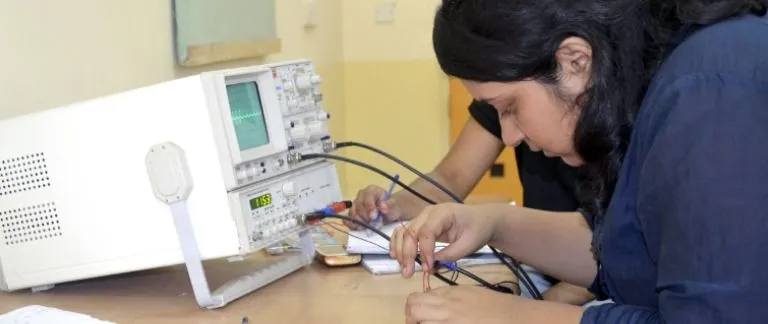
Research projects & publications
Students of B Tech ECE have been conducting research on a wide range of areas and publishing their research at prestigious conferences and in leading journals.
Energy Harvesting System Design Research Centre
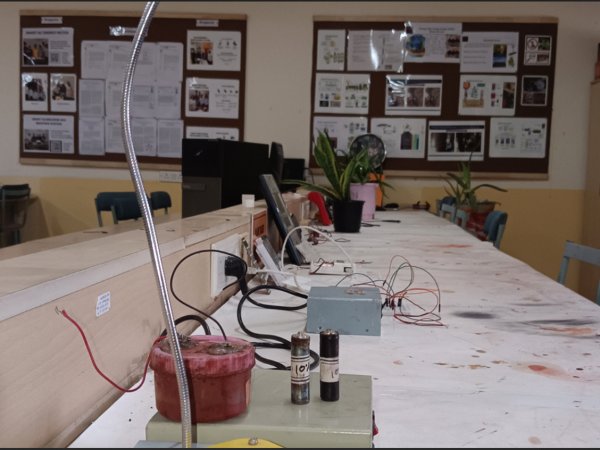
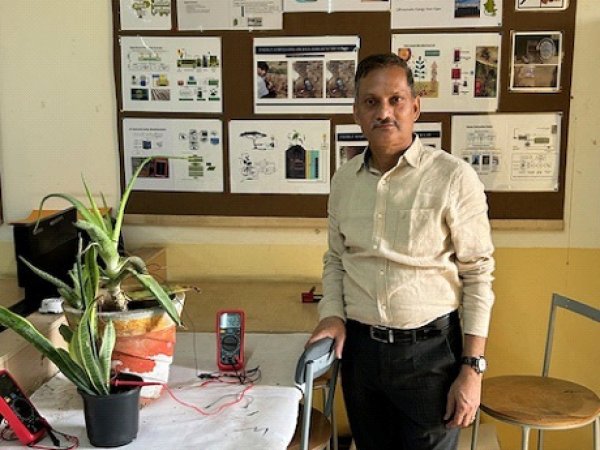
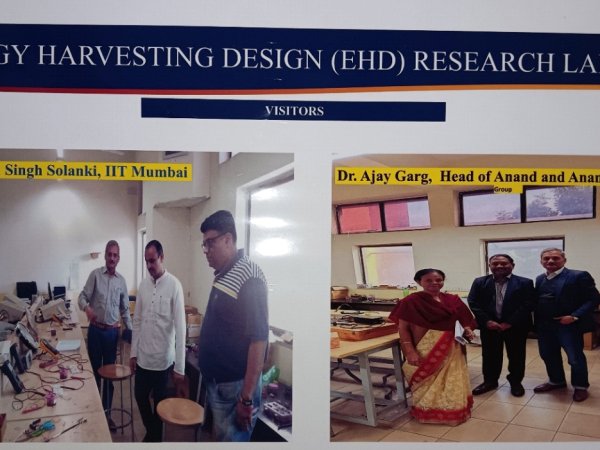
The Energy Harvesting System Design (EHSD) Research Centre at NIIT University, initiated by Prof Ajay Kumar Singh aims to develop new technologies that capture and convert energy from various renewable sources to power electronic gadgets. The research lab has successfully developed an eco-friendly, rechargeable and regenerative “Herbal batteries” as next-gen power source which does not contain any harmful chemicals. The Herbal battery is non-flammable and can survive to extreme weather conditions. This battery also shows an extraordinary characteristics like current capacity varies due to shaking or rotation which can be utilized in e-rickshaw or 3-wheelers. Apart from energy storage systems, the centre is also working on battery health monitoring, smart farming, etc. using IoT technology.
Selected list of R&D projects:
- IOT-based solar tracer and solar monitoring system for maximum power efficiency and design of energy harvesting system
- IOT- and vision-based solution in smart fitting rooms
- Vision-based pose estimation approach used in IOT application
- Scale Invariant Object/Place Identifier
- GAIT Signature for Identification System
- IoT in Retail Advertisement
- QR-Code based Visitor Self-Navigation System for University Campuses
- Design and hardware realization of Semiconductor Parameter Analyzer
- Using Technology for Yoga Posture Monitoring to Assist Improving Social and Academic Skills Acquisition Ability of Educable Students
- P-Agri: Pervasive Agriculture
- Detection of the size of any body part using Image Processing
- Energy-Efficient Approach Towards Network Intelligence in Cooperative Communication in Vehicle Environment
- Sign Realization of Multimedia Sequences
- Segregating photographs based of face detection
- Design analysis of Rectennas for wireless energy harvesting
- Development of WiMAX based Cognitive Communication Technology
- Self-Acquisition of Critical Skills using Mobile Apps for Adolescents with Learning Disabilities
- Design of power aware routing for Ad-Hoc networks in disaster recovery
- Design of a secure smart card-based multi-server authentication scheme
- Effective end-to-end authentication scheme for wearable health monitoring systems
List of student research papers under ECE faculty guidance
- Akshata S, Celestin Fernandes, Dikshant Sharma and Vikas Upadhyaya “Integrated Traffic Management System: A review” published in International Conference on Contemporary Computing (IC3 2024) Published paper: https://dl.acm.org/doi/10.1145/3675888.3676111
- Arnav Neil Ignatius, Anuj Jain, Parth Sandeep Chauhan and Vikas Upadhyaya (2024), “The Application of Virtual Fencing in Home Security Systems”, International Conference on Computer and Applications (ICCA-2024). DOI: 10.1109/ICCA62237.2024.10928068.
- Rayan Chowdhury and Vikas Upadhyaya (2024), “Object Detection and Categorization in Complex Scenarios Using Deep Learning”, International Conference on Computer and Applications (ICCA-2024). DOI: 10.1109/ICCA62237.2024.10928122.
- Ankita Kapoor, Gautam Sharma, Samarth Tanay and Dr. Vikas Upadhyaya (2025), “Multi-Agent Traffic Management System for Smart Cities – A Review”, International Conference on Engineering Trends in Education Systems & Sustainability (ICETESS-2025).
- Agnishwar Raychaudhuri, Khushi Singh, Geetika Agrawal, Jagriti Singh and Dr. Vikas Upadhyaya (2025), “Diabetes Prediction Based on Machine Learning Techniques: A Review”, International Conference on Engineering Trends in Education Systems & Sustainability (ICETESS-2025).
- Ugyen Jigme Rangdrel, Yash Kuletha, Anmol Ranjan Srivastava, Abhilaksh Sharma and Dr. Vikas Upadhyaya (2025), “TinyML on Microcontrollers: A Review”, International Conference on Engineering Trends in Education Systems & Sustainability (ICETESS-2025).
- Yash Rustagi, Ishika Sahu and Dr. Vikas Upadhyaya (2025), “Anomaly detection in human behaviour using computer vision: A review”, International Conference on Engineering Trends in Education Systems & Sustainability (ICETESS-2025).
- Amruta Saharkar, Rakshit Sawarn and Dr. Vikas Upadhyaya (2025), “DE-FAKE: Counterfeit currency detection”, International Conference on Engineering Trends in Education Systems & Sustainability (ICETESS-2025).
- Yash Upadhyay, Dr. Vikas Upadhyaya and Dr. Neha Tiwari (2025), “Advancements in Crop Disease Detection: A CNN-Focused Approach”, International Conference on Engineering Trends in Education Systems & Sustainability (ICETESS-2025).
- Ahana Nair, Archana Anto and Dr. Vikas Upadhyaya (2025), “Presentation Attack Detection in Facial Recognition: A Survey into Facial Spoofing Countermeasures”, International Conference on Engineering Trends in Education Systems & Sustainability (ICETESS-2025).
- C.Aishwarya, Kinjal Parate, Neha Tiwari presented a research paper on ‘Evolution of Display Technology’ in the International Conference, NUclearCSE2022, India, January 20-22, 2022.
- Mamidala Karthik Ram, Neha Tiwari, Dawit Burusie Abdi, Sneh Saurabh published a research paper on ‘Drain Induced Barrier Widening and Reverse Short Channel Effects in Tunneling FETs: Investigation and Analysis’ in IEEE Access, Volume 09, November 2021, Page 150366-150372. SCImago Q1, Impact Factor: 4.48. ISSN(P): 2169-3536, ISSN (O): 2169-3536, DOI: 10.1109/ACCESS.2021.3125856
- Mamidala Karthik Ram, Neha Tiwari, Dawit Burusie Abdi, Sneh Saurabh published a research paper on ‘Effect of Drain Induced Barrier Enhancement on Subthreshold Swing and OFF-State Current of Short Channel MOSFETs: A TCAD Study’, IEEE Access, Volume 09, October 2021, Page 141321-141328. SCImago Q1, Impact Factor: 4.48. ISSN(P): 2169-3536, ISSN (O): 2169-3536, DOI: 10.1109/ACCESS.2021.3119858.
- Debesh Bar, Dhruv Pande, Manveer S. Sandhu and Vikas Upadhyaya (2015) presented a research paper on “Real-time Security Solution for Automatic Detection and Tracking of Intrusion”in International Conference on Image Information Processing, PP. 399-402.
- Pranith K. Thadagoppula and Vikas Upadhyaya (2016) published a research paper on “Vehicle speed detection using Image processing” in International Conference on Computer, Control, Informatics and its applications, PP. 11-16.
- Samarth Gupta and Vikas Upadhyaya (2016) published a research paper on “Automated Vehicle Detection Using Optical Fiber Communication” in IEEE Sensors, PP. 1-3.
- Akash Chakraborty, Neelakshi Talukdar and Vikas Upadhyaya (2022) presented a research paper on “An Autonomous Virtual Tour Guide System for Tourists” in the International Conference, ‘NUclearCSE2022’, India, January 20-22, 2022.
Student Achievements

Student Achievements

Specialisation
Communication and Signal Processing
- Advanced Digital Signal Processing
- Optical Networks
- Non-linear Optical Communications
- Introduction to Nano-Optics and Nano-Photonics
- Digital Image Processing
- Computer Vision
Wireless Communication
- Wireless Broadband Communications
- Advanced Wireless Broadband Communications
- Cellular and Mobile Communication
- Radar Engineering
- Satellite Communication
VLSI and Embedded Systems
- Advanced Embedded Systems
- Introduction to Internet of Things
- Advanced VLSI
- Digital Image Processing
- Computer Vision
- Power Electronics and Instrumentation
Renewable Energy & Electric Vehicle
- Electrical Vehicle Electronics
- Introduction to Renewable Energy
- Power Electronics and Drives
- Vehicle Dynamics
- Energy Storage
Robotics and IOT
- Industrial Control, Robotics and Automation
- Real Time Operating Systems
- IOT and Sensor Networks
- Kinematics of Robots
- Architecture, Protocols and Design Principles of IOT
B Tech ECE subjects & syllabus - 6-month Industry Practice
| Course code | Course | L | T | P | C |
|---|---|---|---|---|---|
| MAT 112 | Calculus | 3 | 1 | 0 | 4 |
| EL 111 | Fundamentals of Electronics | 3 | 1 | 0 | 4 |
| Science I | 3 | 0 | 2 | 4 | |
| TA 111 | Fundamentals of Computer Programming | 2 | 0 | 4 | 4 |
| TA 202 | Engineering Graphics/ Workshop Practice | 2 | 0 | 2 | 3 |
| TA 212 | 1 | 0 | 4 | 3 | |
| TA 102 | Communication Skills/HSSM-I | 2 | 0 | 2 | 3 |
| 3 | 0 | 0 | 3 | ||
| NU 111 | Community Connect | 0 | 0 | 2 | 1 |
| Total semester L-T-P-C | 15 | 2 | 10 | 22 |
| Course code | Course | L | T | P | C |
|---|---|---|---|---|---|
| MAT 101 | Algebra & Differential Equation | 3 | 1 | 0 | 4 |
| Science II | 3 | 0 | 2 | 4 | |
| ENV 301 | Environmental Science | 3 | 0 | 0 | 3 |
| CS 102 | Data Structures | 3 | 0 | 2 | 4 |
| TA 202 | Engineering Graphics / Workshop Practice | 2 | 0 | 2 | 3 |
| TA 212 | 1 | 0 | 4 | 3 | |
| TA 102 | Communication Skills / HSSM-I | 2 | 0 | 2 | 3 |
| 3 | 0 | 0 | 3 | ||
| NU 112 | Community Connect | 0 | 0 | 2 | 1 |
| Total semester L-T-P-C | 16 | 1 | 10 | 22 |
| Course code | Course | L | T | P | C |
|---|---|---|---|---|---|
| MAT 221 | Probability & Random Process | 3 | 1 | 0 | 4 |
| EL 101 | Digital Logic and Circuit | 3 | 0 | 3 | 4 |
| EL 112 | Analog Electronics | 3 | 0 | 2 | 4 |
| CS 251 | Object Oriented Programming | 2 | 0 | 4 | 4 |
| EL 211 | Signal & System | 3 | 1 | 0 | 4 |
| HSSM-II | 3 | 0 | 0 | 3 | |
| NU 211 | Community Connect | 0 | 0 | 2 | 1 |
| Total semester L-T-P-C | 17 | 2 | 9 | 23 |
| Course code | Course | L | T | P | C |
|---|---|---|---|---|---|
| EL 321 | Electromagnetic Theory | 3 | 1 | 0 | 4 |
| EL 212 | Linear Integrated Circuits and Instrumentation | 3 | 1 | 0 | 4 |
| CS 122 | Computer Architecture & Organisation | 3 | 0 | 2 | 4 |
| EL 311 | Digital Signal Processing | 3 | 0 | 2 | 4 |
| EC 202 | Analog and Digital Communications | 3 | 0 | 3 | 4 |
| HSSM-III | 3 | 0 | 0 | 3 | |
| NU 212 | Community Connect | 0 | 0 | 2 | 1 |
| Total semester L-T-P-C | 18 | 1 | 7 | 22 |
| Course code | Course | L | T | P | C |
|---|---|---|---|---|---|
| EL 301 | Integrated Electronics | 3 | 0 | 2 | 4 |
| COM 212 | Communication Networks | 3 | 0 | 2 | 4 |
| EC 301 | Antenna and Microwave Propagation | 3 | 0 | 2 | 4 |
| EL 202 | Microprocessor & Microcontroller | 3 | 0 | 2 | 4 |
| EC 311 | Opto Electronics & Optical Communication | 3 | 0 | 2 | 4 |
| HSSM-IV | 3 | 0 | 0 | 3 | |
| NU 311 | Community Connect | 0 | 0 | 2 | 1 |
| Total semester L-T-P-C | 18 | 0 | 10 | 23 |
| Course code | Course | L | T | P | C |
|---|---|---|---|---|---|
| EC 302 | Control Theory | 3 | 0 | 2 | 4 |
| Professional Elective – I | 3 | 0 | 2 | 4 | |
| Professional Elective – II | 3 | 0 | 2 | 4 | |
| EC 312 | Coding and Information Theory | 3 | 1 | 0 | 4 |
| NU 302 | R&D Project | 1 | 0 | 6 | 4 |
| HSSM-V | 3 | 0 | 0 | 3 | |
| NU 312 | Community Connect | 0 | 0 | 2 | 1 |
| Total semester L-T-P-C | 16 | 1 | 12 | 23 |
| Course code | Course | L | T | P | C |
|---|---|---|---|---|---|
| Open Elective – I | 3 | 0 | 2 | 4 | |
| Open Elective – II | 3 | 0 | 2 | 4 | |
| Industry Practice-I/Research Practice-I | 0 | 0 | 24 | 12 | |
| Total semester L-T-P-C | 6 | 0 | 28 | 20 |
| Course code | Course | L | T | P | C |
|---|---|---|---|---|---|
| NU 402 | Industry Practice-II/Research Practice-II | 0 | 0 | 40 | 20 |
B Tech ECE – Course Architecture – 1 Year IP/RP (Industry Practice/Research Practice)
Programme outcomes
PO1
Engineering knowledge
Apply the knowledge of Mathematics, Science, fundamentals of Engineering and an engineering specialisation to the solution of complex engineering problems.
PO2
Problem analysis
Identify, formulate, review research literature, and analyse complex engineering problems to reach substantiated conclusions using first principles of Mathematics, Natural Sciences, and Engineering Sciences.
PO3
Design/Develop solutions
Design solutions for complex engineering problems and system components or processes that meet specified needs with appropriate consideration for public health and safety, and cognisant of cultural, societal, and environmental considerations.
PO4
Conduct investigations of complex problems
Use research-based knowledge and research methods including design of experiments, analysis and interpretation of data, and synthesise information to provide valid conclusions.
PO5
Modern tool usage
Create, select, and apply appropriate techniques, resources, and modern engineering and IT tools including prediction and modelling to complex engineering activities with an understanding of the limitations.
PO6
The engineer and society
Apply reasoning informed by contextual knowledge to assess societal, health, safety, legal and cultural issues, and the consequent responsibilities relevant to the professional engineering practice.
PO7
Environment and sustainability
Understand the impact of professional engineering solutions in societal and environmental contexts, and demonstrate the knowledge of, and need for sustainable development.
PO8
Ethics
Apply ethical principles and commit to professional ethics and responsibilities and norms of the engineering practice.
PO9
Individual and teamwork
Function effectively as an individual, and as a member or leader in diverse teams, and in multidisciplinary settings.
PO10
Communication
Communicate effectively on complex engineering activities with the engineering community and with society at large. This includes being able to comprehend and write effective reports and design documentation, make effective presentations, and give and receive clear instructions.
PO11
Project management and finance
Demonstrate knowledge and understanding of engineering and management principles and apply these to one’s own work, as a member and/or leader in a team, to manage projects in multidisciplinary environments.
PO12
Life-long learning
Recognise the need for, and have the preparation and ability to, engage in independent and life-long learning in the broadest context of technological change.
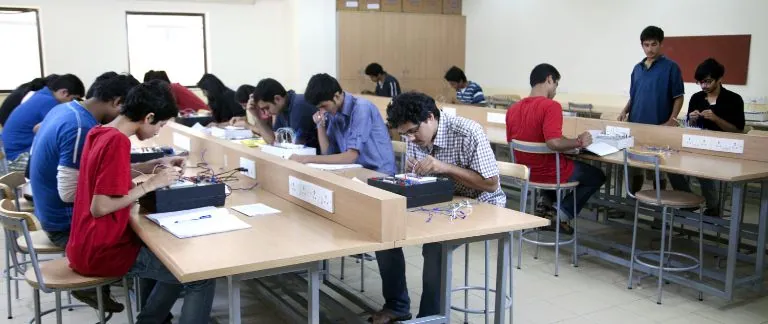
Programme specific outcomes
PSO-1
PSO-2
PSO-3
PSO-4
Events & conferences
B Tech ECE is always buzzing with exciting and engaging events. Here’s a peak into some of our most memorable ones.
ECE NUtons at Tech Fests
The Robotics Club participated in several events winning honors and awards along the way. The teams, led by third year ECE students, included first to third-year students from both ECE and CSE streams.
Techkriti at IIT Kanpur - 2018
- IARC (Flagship event) – Reached Finals, stood in top 10 among 50 teams
- ELECTRADE(Flagship Event) - Shortlisted for Round 2 among 30 teams
- BEST MANAGER (Business events) - Shortlisted for Round 2
- MANDAKINI (Astrophysics) - Stood 4th
- CREATIVE MAPPING (ARTS) - One of the top teams among 10 teams
Cliffesto at NIT Srinagar -2018
- Robosoccer (Flagship event) – 3rd Place
- Flotter – 2nd Place
- Debugger competitions – 3rd Place
Apogee at BITS, Pilani - 2018
- Hackatronics (Flagship event) – 1st Place
- Robosoccer (Flagship Event) – 1st Place
- Good-bye Earth – 1st Place
- Bob the Builder – 2nd Place
- Everyone Dies – 2nd Place
How to apply
FAQs
1. Why Electronics and Communication Engineering?
2. What is the potential of employment?
3. Is ECE one of the toughest branches of Engineering?
4. What is the scope and opportunity for ECE graduates?
5. What are the major technologies where BTech ECE graduates can work?
1. Analog and Radio Frequency Circuits: Without these, cell phones, Wi-Fi, television will cease to exist. A lot of industries are established to meet the consumer demands and in the process, they openopened up a lot of job opportunities for electronics engineers.
2. Communication & Signal Processing: This particular technology finds its application in transmission, storage and analysis of information signals.
3. Computer & Digital Systems: All the industries are able to advance technologically at a faster pace than before with the help of computers. These digital systems are everywhere from smart watches to Mars rovers.
4. Networking: With the boom on the internet, we are experiencing 3G, 4G services which help the organisations and industries to easily collaborate with people. There is a lot of scope for engineers who want to work in this technology.
5. Computer Vision & Image Processing: These technologies are helping computers in the areas like medical, surveying, photogrammetry etc. For instance, now we have medical devices that can analyse data to not only display images but identify diseases too with the help of magneto-resonance imaging technology.
6. Control Systems & Robotics: With the advancement in the technologies lately more and more industries are adopting automation and robots into their operations to improve their efficiency. And a lot more industries are expected to adopt these technologies in the coming years.
7. Remote Sensing: Communication via radio waves is essential for mobile devices, radios, and all the devices that are connected to the internet. From mapping to navigation, remote sensing plays a vital role in various technologies.
8. Nanotechnology: The more efficient solar cells, faster transistors, tracking chips and microscopic sensors that we see today are the products of nanotechnology. Lot of industries are is adapting this technology to make their products smaller and more efficient.
9. Sustainable Energy & Power systems: Now industries are investing lots of their money and time to develop more efficient solar cells, windmills, systems that can generate power from tides etc. This technology offers a wide range of job opportunities for electronics engineers.
10. Energy Storage Technology: The demand for energy storage systems is likely to grow exponentially globally as the world shifts towards renewable energy sources. This shift will mandate both grid level and unit level energy storage systems that are of viable size, cost, and energy efficiency. Significant research is currently being conducted on materials, engineering, and other optimisations.
